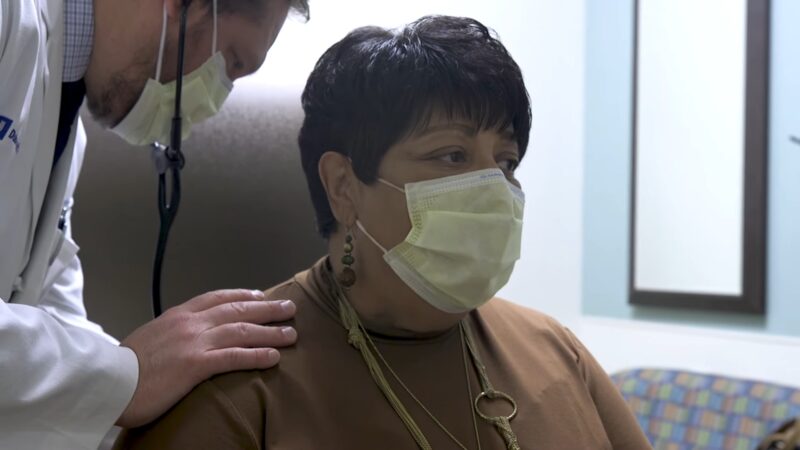As an experienced oncologist, I have been deeply immersed in the intricacies of cancer, particularly breast cancer. The journey of battling breast cancer is fraught with myriad challenges and emotional turmoil, and my hope is to shed light on the signs and symptoms of end-stage breast cancer.
Let’s begin.
The Basics
Breast cancer is a malignant tumor that starts in the cells of the breast and can affect both men and women, but is far more common in women. Understanding the signs and symptoms of end-stage breast cancer is crucial for patients, families, and caregivers as it provides a foundation for discussing prognosis, treatment options, and palliative care.
Early and Advanced Stages of Breast Cancer
Breast cancer has several stages, ranging from 0 to IV, determined by the size of the tumor and the extent of its spread. Early stages are usually associated with better prognoses, while advanced stages involve extensive spread to other organs and tissues, indicating a critical condition that requires intensive care and management.
- Early Stages (0–II): Characterized by smaller tumors and localized spread.
- Advanced Stages (III–IV): Involve larger tumors, potential spread to nearby and distant lymph nodes, and metastasis to other organs.
End Stage Breast Cancer
End-stage, or stage IV breast cancer, is characterized by the spread of cancer cells to distant organs such as bones, liver, lungs, or brain. It’s considered incurable but can be managed with treatments aimed at alleviating symptoms and improving quality of life.
Early detection and constant monitoring are pivotal, as they can help in managing the symptoms effectively and in providing suitable palliative care.
- Palliative Care: Focuses on providing relief from the symptoms and stress of the cancer experience.
- Quality of Life: Essential to maintain the well-being of the patient by managing pain and other distressing symptoms of end-stage breast cancer.
Recognizing the Signs and Symptoms

Recognizing the signs and symptoms of end-stage breast cancer is vital. Early recognition can assist in the effective management of the disease and can aid in making informed decisions regarding treatment and palliative care options.
Physical Symptoms
Physical symptoms can be overwhelming and require immediate attention and management to ensure the comfort of the patient. These include:
- Pain: Widespread and severe pain, especially in the areas where the cancer has spread.
- Breathlessness: Difficulty breathing due to the involvement of lungs or pleura.
- Jaundice: Yellowing of the skin and eyes, usually resulting from liver involvement.
Psychological Symptoms
The psychological symptoms of end-stage breast cancer are as impactful as the physical ones and need to be addressed with compassion and adequate support. Depression, anxiety, and fear are common psychological symptoms encountered, necessitating psychological counseling and support.
- Depression and Anxiety: Resulting from the fear of death, loss of control, or suffering.
- Cognitive Dysfunction: Difficulty concentrating, remembering things, or making decisions, often as a side effect of treatments or due to tumor spread to the brain.
Management of Symptoms
Managing the symptoms of end-stage breast cancer involves a combination of medical treatments, psychological support, and palliative care aimed at improving the quality of life and easing suffering. It’s crucial to formulate an individualized management plan, considering the unique needs and preferences of each patient.
- Pain Management: Using medications, nerve blocks, or other therapies to control pain.
- Psychological Support: Counseling and support groups can be invaluable in managing psychological symptoms.
- Palliative Care: Focuses on relieving symptoms and supporting patients and their families.
Navigating Through Treatment and Palliative Care

Navigating through treatment and palliative care options can be overwhelming for patients and their families. Knowledge about the various options available and understanding their potential impacts is crucial for making informed decisions and ensuring the best possible quality of life for the patient.
Medical and Therapeutic Interventions
Medical and therapeutic interventions aim to manage the symptoms of end-stage breast cancer and control the progression of the disease. They focus on enhancing the patient’s quality of life and may include chemotherapy, targeted therapy, hormonal therapy, and radiation therapy.
- Chemotherapy: Uses drugs to kill cancer cells or stop them from dividing.
- Radiation Therapy: Uses high-energy rays to target and kill cancer cells in a specific area.
Emotional and Psychological Support

Providing emotional and psychological support is a cornerstone of managing end-stage breast cancer. Supportive care, including counseling, support groups, and mental health services, can help address the emotional and psychological impact of the disease on patients and their families.
- Counseling: Helps in addressing feelings of fear, anxiety, and depression.
- Support Groups: Offer a platform for patients and families to share their experiences and gain support.
Holistic and Integrative Approaches
In addition to conventional medical treatments, holistic and integrative approaches can play a significant role in managing symptoms and improving the quality of life of patients with end-stage breast cancer. These approaches may include nutritional support, acupuncture, massage therapy, and mindfulness-based stress reduction.
- Nutritional Support: Helps in maintaining strength and managing treatment side effects.
- Mindfulness and Relaxation Techniques: Assist in reducing stress and improving overall well-being.
Prognosis and End-of-Life Discussions
Having conversations about prognosis and end-of-life care is challenging but crucial. Open and honest communication about expectations, preferences, and fears is essential in planning and providing the most appropriate care tailored to the individual needs of the patient.
Importance of Clear Communication
Clear and compassionate communication is vital in discussing prognosis and end-of-life preferences. Such discussions can help in setting realistic goals and making informed decisions regarding treatment, symptom management, and palliative care options.
- Advance Care Planning: Ensures that the patient’s preferences for end-of-life care are respected.
- Healthcare Proxy: Assigning a trusted individual to make healthcare decisions on the patient’s behalf if they are unable to do so.
Ethical Considerations and Dignity
Maintaining a patient’s dignity and respecting their values and beliefs is paramount during end-of-life care. Ethical considerations should guide every aspect of care, ensuring that the patient’s wishes are honored and their autonomy, privacy, and integrity are preserved.
- Respect for Autonomy: Honoring the patient’s choices and decisions regarding their care.
- Preservation of Dignity: Providing care that maintains the patient’s self-esteem and self-worth.
End-of-Life Care Options
End-of-life care options focus on providing comfort, pain management, and emotional support to the patient and their loved ones. The choices may include hospice care, home-based care, and symptom management based on the patient’s preferences and needs.
- Hospice Care: Provides compassionate care focusing on pain relief and symptom management.
- Home-Based Care: Allows the patient to receive care and support in the comfort of their home.
FAQs
How often is breast self-exam recommended for early detection of breast cancer?
Breast self-exam is recommended to be performed once a month, especially a few days after the menstrual cycle ends, as breasts are less likely to be swollen and tender at this time. However, clinical breast exams and mammograms are more reliable in detecting abnormalities early.
Can end-stage breast cancer be prevented through lifestyle modifications?
While there is no sure way to prevent breast cancer, certain lifestyle modifications can significantly reduce the risk. These include maintaining a healthy diet rich in fruits and vegetables, regular exercise, limiting alcohol intake, avoiding tobacco, and maintaining a healthy body weight.
Early detection through regular screenings is also crucial in managing the disease effectively if it occurs.
Can end-stage breast cancer patients participate in clinical trials?
Yes, end-stage breast cancer patients can participate in clinical trials, and it’s often encouraged. Clinical trials offer access to new and experimental treatments that might not be available otherwise and can provide additional options for patients who have exhausted standard treatment options.
What role does genetics play in breast cancer?
Genetics can play a significant role in breast cancer development. Individuals with mutations in the BRCA1 or BRCA2 genes have a higher risk of developing breast and ovarian cancers.
Regular screenings and genetic counseling are recommended for individuals with a strong family history of breast cancer to assess and manage their risks effectively.
How does end-stage breast cancer impact life expectancy?
End-stage breast cancer significantly impacts life expectancy, and the prognosis is generally poor. However, life expectancy can vary widely depending on individual health conditions, response to treatments, and how well the symptoms are managed. Some patients may live for several years with appropriate treatment and symptom management.
Are there any advancements in treating end-stage breast cancer?
Yes, ongoing research and clinical trials are continually leading to advancements in the treatment of end-stage breast cancer. Innovations in immunotherapy, targeted therapy, and hormone therapy are providing new avenues for treatment, aiming to improve survival rates and quality of life for patients with advanced-stage breast cancer.
Closing Thoughts
End-stage breast cancer is a devastating phase of the disease characterized by extensive spread and severe symptoms. Recognition of these signs and symptoms is crucial for patients, families, and caregivers to facilitate informed decisions regarding treatment and palliative care, emphasizing improving quality of life and easing suffering.
A multidisciplinary approach involving medical treatments, psychological support, and palliative care is essential in managing the symptoms and improving the overall well-being of the patient.
